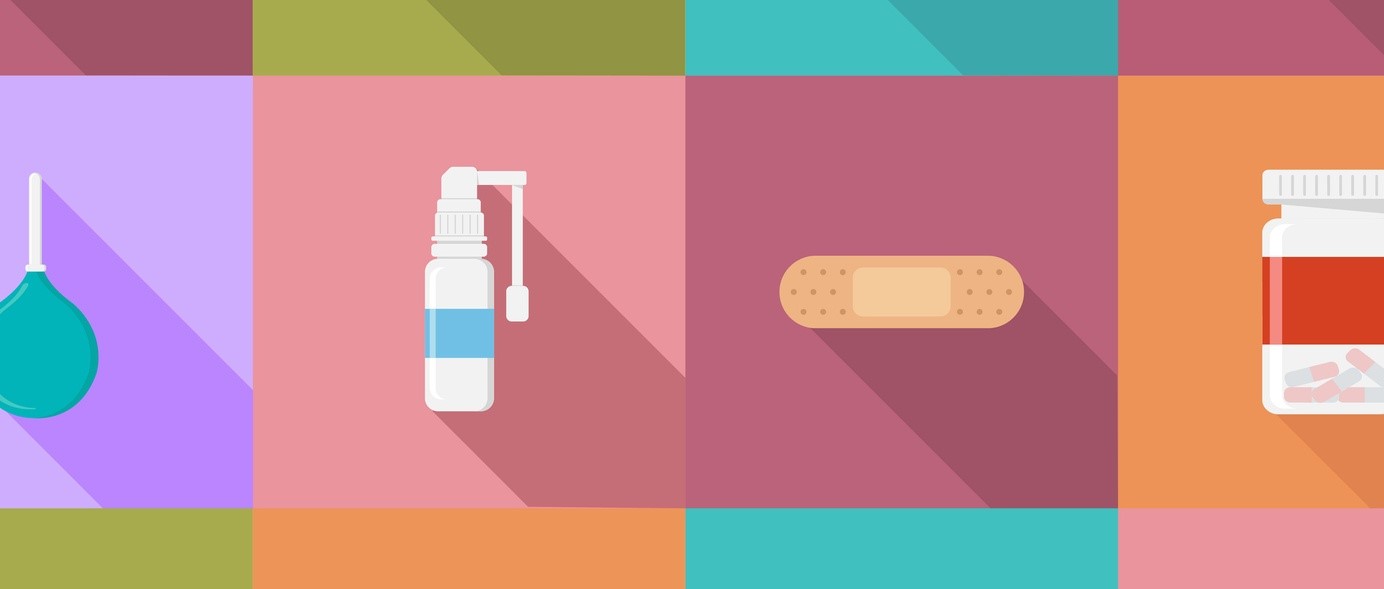
Health problems you don't need to see your doctor about
Peer reviewed by Dr Sarah Jarvis MBE, FRCGPLast updated by Milly EvansLast updated 9 Jul 2019
Meets Patient’s editorial guidelines
- DownloadDownload
- Share
- Language
- Discussion
- Audio Version
Whilst the expertise of GPs is invaluable, there are plenty of minor ailments and services which you don't need to see a doctor for. Your pharmacist may be a better option.
In this article:
Video picks for Pharmacy services
A 2018 Local Government report found that one in five GP appointments are for minor conditions, totalling 57 million consultations a year. This costs the NHS £2 billion a year and an hour of each GP's time a day.
Many people look for a prescription to fix their illness, despite the same treatment often being available over the counter more cheaply. One small study of practices in Scotland showed that a clinical pharmacist based in a GP practice can free up to five hours of GP time a week, just by taking on prescribing work.
Pharmacists, practice nurses and other healthcare professionals can provide the same care whilst reducing the workload for GPs and making it easier for you to get an appointment.
So should we all be heading to our local pharmacy instead of a GP?
Continue reading below
The pharmacist will see you now
Although there is no formal list of ailments you should go to a pharmacist about, common sense and evaluating the severity of the illness or injury should help you know who to see, according to Andre Yeung of the Royal Pharmaceutical Society. "With any condition, take a 'cough' for example, there'll be a range of levels of severity of the illness and that determines the type of care required. Many patients with a cough will simply manage their own condition, which is called 'self-care' and is entirely appropriate for most people.
"However, there are some patients who have additional symptoms or medical history which mean that they will require the support of the pharmacist for advice and recommendations about how best to manage their condition. And similarly, there are some patients, a minority, where a cough is even further complicated, and they will require the support of their general practitioner," he explains.
Of course, using a reputable source of information, such as the peer-reviewed articles on this website, will allow you to tease out most of the 'red flags'. Users of Patient Access can now find information about hundreds of clinical conditions direct from the Patient Access app. But if in doubt, a pharmacist will be able to tell you whether you need to make that GP appointment.
Specialty doctor and medical journalist, Dr Patricia Macnair, agrees. "It's a better use of everyone's time. For example, something like athlete's foot can easily be recognised by the pharmacist, who can explain the range of different treatments and help you choose one to suit you. If you normally pay for a prescription you may find it's cheaper to buy it anyway. Or your GP may not give you a prescription but just tell you to talk to the pharmacy."
As trained professionals, pharmacists can assess a health condition and treat a patient or direct them to another service.
"The role of the pharmacist in all of this is to undertake some clinical assessment of the patients attending the pharmacy and to make appropriate judgements about the correct course of action for each patient. Therefore, it should be reassuring to know that if you attend a pharmacy you will receive healthcare advice that is appropriate for you at that time. Pharmacists across England are performing this role thousands of times each day," says Yeung.
Pharmacy treatments - just as good as prescriptions
Back to contentsUntil a couple of decades ago, virtually every licensed medication needed a doctor's prescription. Since then, hundreds of medicines have been reclassified as 'P' medicines - available without prescription, but only following a consultation with a pharmacist. In addition, many medications which are still licensed as 'POM' (prescription only medicines) can now be provided by a pharmacist with specialist training under a scheme called PGDs, or Patient Group Directions.
So pharmacists are often providing exactly the same medicine you would get from your GP, but without the two week wait for a GP appointment. There are many complaints for which seeing a pharmacist first could benefit you. Some examples might be:
Aches and pains (eg back pain, headache and migraine, period pain, teething and toothache).
Allergies (eg bites and stings, skin reactions).
Colds and flu (eg cough, congestion, sore throat, fevers and/or temperature).
Ear care (eg earache, ear wax, ear infection).
Eye care (eg bacterial conjunctivitis, styes).
Stomach aches (eg constipation, diarrhoea, haemorrhoids, indigestion, reflux, threadworm, vomiting).
Skin/mouth problems (eg athlete's foot, chickenpox, cold sores, contact dermatitis, fungal infection, nappy rash, scabies, skin rash, vaginal thrush, warts and verrucae).
Hay fever which isn't controlled by standard over-the-counter treatments
Your pharmacist can also offer you advice on healthy living, like diet, exercise and quitting smoking, as well as providing services like emergency contraception, travel vaccinations and antimalarial tablets for travellers. If you want to delay your period because you're going on holiday or have a big event coming up, they can sort that too.
Continue reading below
How does seeing a pharmacist benefit you?
Back to contentsOne of the benefits of using pharmacy services is that if everyone does it, more people will be able to get GP appointments when they need one.
"These benefits become more obvious at times of peak demand - for example, during winter when GP appointments are harder to come by. These system problems are alleviated if more people decide to manage their care by visiting a pharmacy instead of taking a GP appointment. If we can encourage more patients to do this when it's appropriate then this will help the whole system and mean that those who need care the most can get it in a timely manner," says Yeung.
For some conditions, you could actually get a better service by choosing a pharmacy over a doctor's surgery, highlights Macnair. "If you see your GP for minor problems you are likely to be sent to the pharmacy anyway, so it saves time to go directly. Pharmacists may give you more time too and answer any questions you might have about how to use the treatment and what side effects or complications to look out for."
Additionally, the more flexible hours and accessible locations of pharmacies mean that getting to a pharmacist when you have a health problem will likely be easier and quicker than waiting for a GP appointment.
"As a patient you get direct access - with no need to book an appointment - to someone with a huge knowledge of treatments that you can buy directly over the counter in the pharmacy. They are a great resource," explains Macnair.
What role does pharmacy play in the NHS?
Back to contentsThe NHS 'Long-term Plan', announced in January 2019, sets out a ten-year vision for the NHS as a way to improve access to and efficiency of services. The integration of pharmacy services with GP practices is designed to encourage patients to see their pharmacist rather than their GP for certain treatments and advice on minor ailments, as well as general health and well-being.
This is a step in the right direction, according to Yeung. "The NHS has not made the most of the clinical resource that exists across the community pharmacy network in England. This has been due to number of well-recognised challenges in the way that out-of-hospital care systems operate. However, with the advent of services like the digital minor illness service and the NHS urgent medicines supply advanced service it seems that the NHS is finally overcoming these barriers, which must be applauded.
"It is now time for community pharmacy as a sector to rise to the challenge and continue to deliver really exceptional results for the benefit of patients."
Patient picks for Pharmacy services

General health and lifestyle
Pharmacy First - getting the most from your pharmacist
It's World Pharmacy Day and we explain when you can visit a pharmacist to receive advice and treatment for some simple illnesses, instead of going to see your doctor. Read here about the NHS Pharmacy First scheme, what conditions you can go directly to your pharmacist about, and what else you need to do.
by Lawrence Higgins

General health and lifestyle
Health problems you don't need to see your doctor about
Whilst the expertise of GPs is invaluable, there are plenty of minor ailments and services which you don't need to see a doctor for. Your pharmacist may be a better option.
by Milly Evans
Continue reading below
Article history
The information on this page is peer reviewed by qualified clinicians.
9 Jul 2019 | Latest version

Ask, share, connect.
Browse discussions, ask questions, and share experiences across hundreds of health topics.

Feeling unwell?
Assess your symptoms online for free
Sign up to the Patient newsletter
Your weekly dose of clear, trustworthy health advice - written to help you feel informed, confident and in control.
By subscribing you accept our Privacy Policy. You can unsubscribe at any time. We never sell your data.